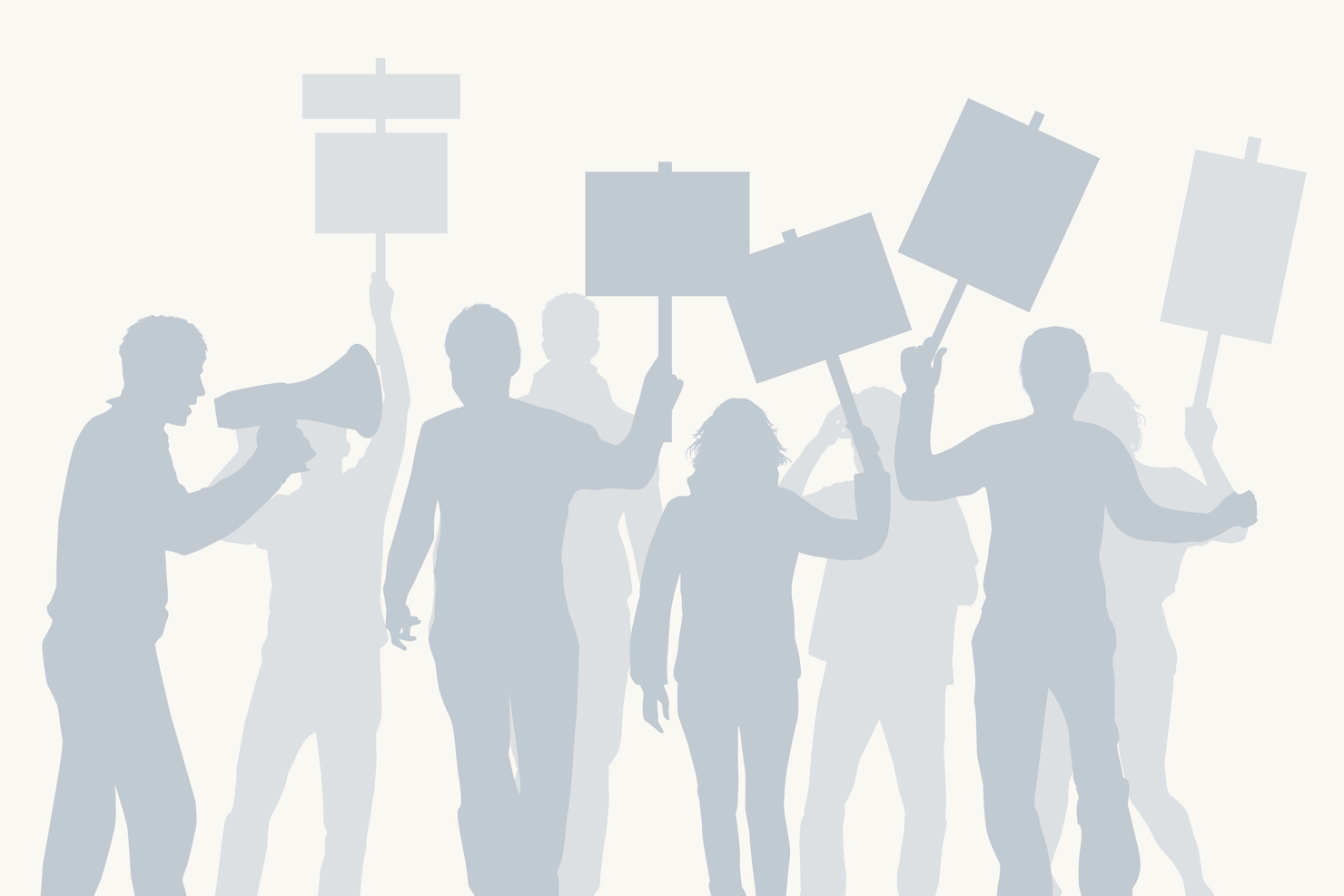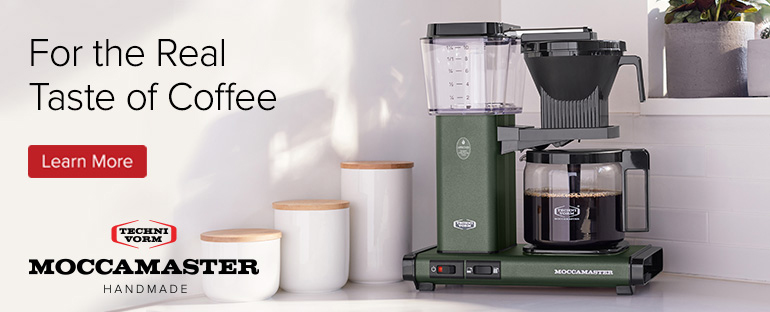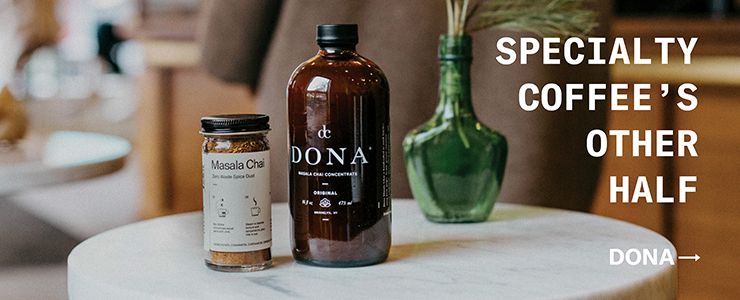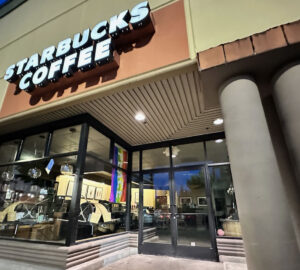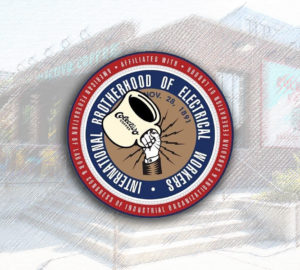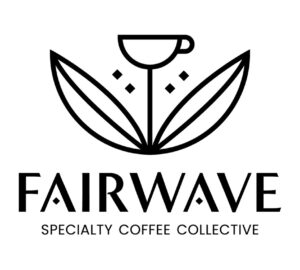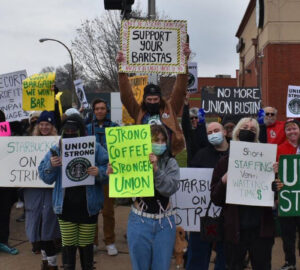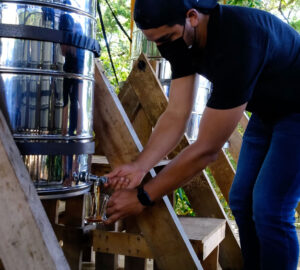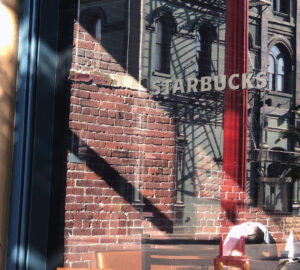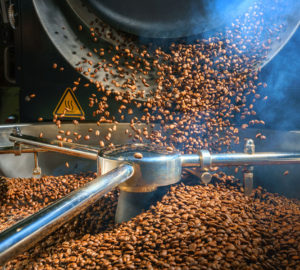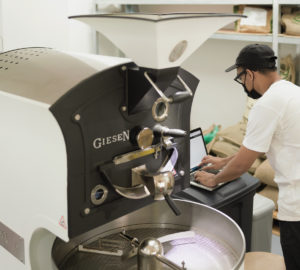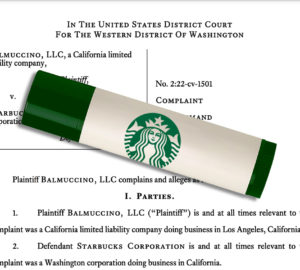You may have seen it referred to as “The Great Resignation” or claimed as a “labor shortage.” A medley of think pieces have emerged across American media in the last year, many of which refer to the pandemic as the root cause of organized labor issues today. But when it comes to the coffee industry, root causes run much deeper than the Coronavirus, and the fight to organize coffee workers under the banner of labor unions has its own unique historical narrative—one that is far from settled here in 2022.
“We believe very strongly that these were already trends that we were seeing, but we had anticipated them in five years, 10 years,” says Roux Nolan, a principal at Food.Partners. “The pandemic merely fast-forwarded and accelerated that rate of change.” The Chicago-based organization works with immigrant-owned and operated businesses and cooperatives in the hospitality or food and beverage industry. It develops and establishes systems that support workers’ rights and their communities.
Nolan continues: “It’s a permanent shift and change. An entire generation of food and beverage specialists or experts have left the industry permanently. It’s a huge loss across the board because they’re looking for places where they’re compensated better and where they have better representation and that is not going to go back.”
The unionization of coffee is not some dusty, historic intellectual exercise; indeed, the topic of union organizing in coffee is at a fever pitch today and shows no sign of slowing. Since I began working on this piece, over 100 Starbucks locations have filed for union elections and a barista strike for union recognition began in Detroit. This is only a part of the larger wave of unionization efforts sweeping across the US. Meanwhile there appears to be widespread support for such efforts among the general public: 68 percent of Americans approve of labor unions, the highest approval level since 1965.
Because of high turnover rates and low wages, the food and beverage industry rarely sees unionizing success. As of 2021, when compared to the national union membership rate of 10.3%, the Bureau of Labor Statistics reports that the food preparation and service sector has one of the lowest union rates of any industry: 3.1%.
To understand how we got here, let’s look at the history of union organizing in coffee, and where the movement may be headed next.
Starbucks
For much of history, the growth and decline of restaurant unions has mirrored the trajectory of manufacturing unions. Formed in 1891, the first restaurant union was the Hotel and Restaurant Employees International Alliance (HERE is now part of Unite Here). “If you owned a bar or restaurant in a little town in the Midwest where there was some kind of union factory, and you wanted the union workers to come patronize your establishment, then you needed to be a union restaurant also,” Unite Here historian David Whitford told Marketplace, a business news radio program. Unfortunately, the introduction of fast-food restaurants and new labor laws chipped away at food and beverage unionization efforts.
The Starbucks stores’ union filings have dominated the headlines for the past six months, but the company’s history with unions goes further back to the 1980s, long before it became the multinational cafe chain that it is today.
Having spent decades leading the company, Howard Schultz’s name is nearly synonymous with Starbucks. Schultz left Starbucks in 1985 to start his own cafes and returned in 1987 to acquire the company. Even in the early years, he was strongly opposed to employees unionizing, believing that their trust in him should be enough.
“I was convinced that under my leadership, employees would come to realize that I would listen to their concerns. If they had faith in me and my motives, they wouldn’t need a union,” writes Schultz in his 1999 memoir “Pour Your Heart Into It: How Starbucks Built a Company One Cup at a Time.” In it, he recalls Starbucks’ employees’ first union campaign in March 1985 and its eventual decertification in 1992.
The first Starbucks union by the United Food and Commercial Workers was made up of around 120 members, consisting mostly of workers in the company’s Washington State roasting plant. During the union’s second round of contract negotiations, workers at its 11 stores were added to UFCW at Schultz’s insistence. The hope was that it would dilute pro-union sentiments, but the strategy backfired.
Schultz touted his initiative for being the first US company to establish health coverage for part-time workers. What his memoir and the company’s own timeline fail to mention was that he inherited the union contract that negotiated for those benefits and that they already existed for decades for thousands of unionized part-time workers.
While Schultz says that it was a barista who headed up the decertification campaign, an ex-employee and local union’s organizing director remembers it differently. As told to Politico: “Starbucks actually filed the decertification petition. In my 30 years on staff at the union, it was the only management petition we ever saw to decertify a union. Howard was not aloof from this process. He did everything he could to provoke that situation.”
With the union being out, Schultz was ready to expand Starbucks, saying he could count on employees “to work as a team and imbue them with the enthusiasm they would need to spread the word about Starbucks coffee around the country.”
Since then, Starbucks has actively and mostly successfully resisted union campaigns. These anti-union efforts have led the National Labor Relations Board (NLRB) to file dozens of labor cases throughout the years.
Within the last decade, interest in collective bargaining among baristas continued to grow, both at Starbucks and throughout the growing specialty coffee industry, a commercial-culinary-cultural movement sometimes referred to as “third wave coffee”.
2017
In 2017, baristas from Ithaca, New York-based Gimme! Coffee declared union intent and a year later, unanimously ratified their first contract. Later that same year, Ann Arbor-based Mighty Good Coffee made the news with its baristas filing for a union election. “There was a catalyzing problem at our company where the only Black woman who worked at our company at the time resigned in frustration over discrepant wages,” recalls Alec Hershman, one of the lead organizers of the union campaign. He describes it as “a cultural reckoning of how we deal with racism in our company that moved the rest of us who remained in the company to unionize.”
Hershman describes the eight-month period as “one of the more stressful things that I’ve ever undertaken” and that “the company fought us the whole way.” Negotiations went on for six months until “very suddenly, they decided to lay off all the baristas” and close the stores with four days’ notice.
From the Mighty Good unionizing efforts, the Washtenaw Area Coffee Workers’ Association (WACAW) was formed as an organizing committee in the Industrial Workers of the World (IWW) global union. WACAW continues its work today by providing union education resources and workshops for area workers.
2019
In 2019, New York-based SPoT Coffee employees voted to form a union. Three employees were fired right after the announcement and charges were filed with the NLRB. Gary Bonadonna Jr. of the Rochester Regional Joint Board of Workers United told Democrat & Chronicle at the time that “there’s no doubt in my mind” that the terminations were related to union activities and “I don’t believe in coincidence. They were fired within minutes of each other, while asking about how to form a union.”
Also the same year, employees at Stone Creek Coffee in Milwaukee voted against forming a union. At the time, Stone Creek had about 213 employees and a dozen locations across the Milwaukee metropolitan area. Some of the issues that prompted the election included unresponsive management, not receiving a living wage, full-time workers not being scheduled with enough hours to guarantee benefits, and too much time on shift without breaks, per the Milwaukee Journal Sentinel.
2020
The first pandemic year surfaced issues that were already bubbling up. A spokesperson for the hospitality union Unite Here, Diana Hussein, told me that “the pandemic really devastated the industry, maybe more than any other one. It really hit our membership hard. At one point when the lockdown measures were at their peak, it was 98% laid off.” She estimates that the rate is now around 60%.
“The U.S. entered the COVID-19 pandemic with a weak system of labor protections, historically low rates of union density, and extreme economic inequality,” reported the Economic Policy Institute, a nonprofit and nonpartisan think tank. The report described why unions are useful for workers in a crisis like the pandemic and what policy changes were recommended. The report found what many in the service industry already knew: “While providing the ‘essential’ services we rely on, these workers have been forced to work without protective gear, have no access to paid sick leave, and when workers have spoken up about health and safety concerns they have been fired.”
In Inland Empire, workers at Augie’s Coffee asked for union recognition and instead, were all laid off. “During the pandemic there were weeks when I was working 10 days straight or more without overtime compensation or appropriate breaks,” said Augie’s employee Katie Walsh in a press release. “It’s really upsetting that we worked so hard to keep Augie’s afloat during the pandemic and they repaid us by violating overtime laws and then laying us all off.” Charges were filed with the NLRB for retaliation and $140,000 of wage theft claims were filed with the California Division of Labor Standards Enforcement. The union transformed into the Slow Bloom Coffee Cooperative.
Later that year, workers at Spyhouse Coffee in the Twin Cities narrowly voted by three votes against unionization. After union intent was public, the company sent an email “pushing anti-union rhetoric.” A week later, the union released a statement, “The company has made numerous disgusting attempts to try and gaslight us, saying that we are bringing vitriol and negativity into the company, going as far as to say this campaign is only the thoughts and feelings of a small minority.” Charges for union-busting were filed with the NLRB.
2021
One year into the pandemic, an historic wave of coffee unionization efforts took place across the United States.
After over a year of organizing, workers at Colectivo Coffee voted in favor of unionization in early 2021 and became the largest coffee union in the US. Staff in the bakery, roastery, and cafes brought up issues like last-minute scheduling, a rapid expansion without sufficient staffing, and mishandling of COVID procedures.
Colectivo owners were accused of being actively against union formation, going as far as to hire a union-busting firm. Some 16 cases have been filed at the NLRB. However, with the company filing for a second appeal of the union election, this time at the national level, negotiations were stalled. Shortly before the publication of this piece and after two years of organizing, the NLRB issued a decision in favor of Colectivo employees.
In late 2021, Pavement UNITED became the first cafe union in Massachusetts. Pavement Coffeehouse has eight locations in the Boston area. Because the union had over 50% of the company’s employees submit cards, management had to recognize the union and owner Larry Margulies penned a public letter in support.
In the same area and also supported by the union United Here, workers at Diesel Cafe, Bloc Cafe, and Forge Baking Company formed a union as well as those at Darwin’s LTD. Both unions have been recognized by the companies.
A Buffalo, New York Starbucks store made national headlines for being the first cafe in the company to successfully unionize. Prior to the election, Starbucks created a website with anti-union sentiments. Its FAQ page notes, “We know that some partners are considering unionizing and know that you may have questions about that. We do not believe unions are necessary at Starbucks because we know that the real issues are solved through our direct partnership with one another.”
2022
This brings us to the current year, which is not yet half-over, and promises to be yet-another history making year for the coffee union movement.
A cafe in Hopewell, New Jersey joined the growing ranks of Starbucks stores that have since declared union intent. Sara Mughal, shift supervisor at Starbucks and an organizing committee member says that the pandemic exacerbated existing issues like understaffing, an intense workload, and underpayment. Naming pandemic-related tasks like constant hand washing, sanitization, she says, “There really was no way for us to realistically do all of those things while simultaneously keeping our extremely busy cafe running.”
Mughal echoed many other coffee union organizers’ grievances: “We have been asking for so little, and getting only more work thrown at us in return. Our team is now thinking bigger. Now that we are unionizing, we can demand all of the things we need and deserve, while being taken seriously by Starbucks.”
This runs counter to what a company spokesperson told me. Even with all of the union activity among stores, Starbucks’ position “hasn’t changed” since December. “From the beginning, our belief has been that we’re better together in our direct relationship as partners without a union between us,” they said. “Throughout the course of our history, what has made Starbucks successful is the direct relationship where we can hear directly from one another and innovate new solutions to the challenges that we face together.”
In Ames, Iowa, Morning Bell Coffee Roasters became the first worker-owned cooperative in the state. The then-owners financed the transition. While rare in coffee, the business model transition from a single-owner to worker-owned is not unprecedented. Back in 2018, Rock City Coffee in Rockland, Maine became a worker-owned cooperative.
Nolan at Food.Partners advocates for the co-op model over unions for small businesses. The worker-owners “not only have a say, but they have a piece of the ownership and equity and success in the business,” they said. “And that’s really the huge difference between cooperative conversions and ones that decide to unionize.”
“One of the great wealth generators, especially amongst immigrant communities is entrepreneurship and business ownership,” he said. Because his organization works within the immigrant space and the businesses of color space, Nolan understands that owners may be hesitant at sharing ownership. However, they advise, “If you see that you are continuing to have labor issues and shortages and getting skilled staff, you will need to find some way of compensating workers in an additional way, as opposed to just wages.”
In mid-February 2022, Great Lakes Coffee workers in Detroit began a strike for management to recognize the union. “One of the reasons why we’re asking for recognition is the fact that we struggle to communicate with management and with the owners,” said Great Lakes barista Lex Blom. “Despite several attempts on our end to try to resolve this to any kind of means, we’ve been met with being dismissed or been met with absolute silence.” They’ve been in the coffee industry for 12 years and now has “more hope for my career today than I have had in the last seven years.”
“These workers, there’s an energy with them that’s unlike anything I’ve ever seen,” says Diana Hussein, a spokesperson from Unite Here, the union that Great Lakes Coffee workers are aligned with. She had just left the strike rally—news of the strike was so fresh that I learned about it as I was conducting the interview. She talks about the reasons for unionizing as “about a lot of things, but primarily you’ll hear the workers say it’s about respect. No matter the size of the company you should be respecting your workforce.”
As the wave of collective bargaining continues in the coffee industry, union organizers are hopeful for the future. Blom says, “Mostly at this point, we’re fighting for unionization for ourselves right now. But to be honest, we all want to see this become a change in the coffee industry at large and not just in the Metro Detroit area.”
For baristas wanting to unionize, Hershman brings this advice: “I would say that it’s your shop and you have to take control collectively and do it yourselves. Just because you have an election and you’ve got a union to represent you, it doesn’t mean that things will get better unless the baristas are the ones who make it better.”
Whether it’s opting for a union or cooperative model, Nolan concludes, “Any time there are organizers and individuals that are pressing for workers’ rights, that is a benefit to all of society.”
Meanwhile, back at Starbucks, the flagship Reserve Roastery—touted as the brand’s “amphitheater of coffee“—has voted to unionize, becoming the second location of Starbucks in Seattle to do so.
Jenn Chen (@thejennchen) is an Editor At Large at Sprudge Media Network. Read more Jenn Chen on Sprudge.
Explore more unionization coverage on Sprudge.








